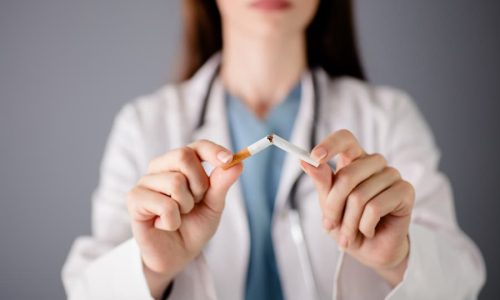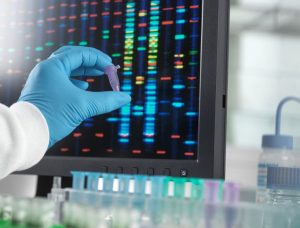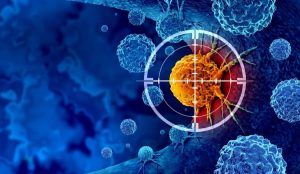
Recognizing Cancer Misinformation: Expert Insights from 2 RCCA Oncologists
“Consider the source.” It’s good advice for dealing with the sting of criticism or the allure of gossip, but two oncologists say it’s even better
HIPAA Alert: Potential Data Breach Learn More
Questions on Oncology, Hematology and/or Infusion Clinical Services due to COVID-19 Crisis – CALL 833-698-1623
Important Information for Our Patients Regarding the Coronavirus.
RCCA Providing Area Cancer Patients with Access to Care During Coronavirus Outbreak
RCCA Offering Patients Virtual Visits During Coronavirus Pandemic
When people receive a lung cancer diagnosis, their oncologists will often recommend that they make certain lifestyle changes to reduce their symptoms, strengthen their immune system, and give themselves the best chances for survival. With extensive experience treating patients with lung cancer, Regional Cancer Care Associates (RCCA) has the expertise to guide patients in making important lifestyle changes while they receive the latest evidence-based therapies. RCCA provides comprehensive cancer and blood disorder treatment to patients throughout New Jersey, Connecticut, Massachusetts, and the Washington, D.C., area. Here, RCCA oncologists discuss important changes to make after receiving a lung cancer diagnosis.

The main risk factor for developing lung cancer is smoking tobacco; 87 percent of all cases of lung cancer in the United States can be attributed to smoking. If patients still smoke cigarettes or cigars or chew tobacco at the time of their lung cancer diagnosis, the most important change they can make is to quit smoking.
Research has shown that quitting smoking after a diagnosis of lung cancer can help people live longer than those who don’t. Smoking cessation was associated with about a 30-percent improvement in overall survival. By contrast, smoking after a lung cancer diagnosis can increase the risk of treatment failure and lead to decreased odds of survival. This is why it’s so important to quit smoking if you’ve received a lung cancer diagnosis—it’s not too late. Ask your physician for resources to help with smoking cessation.
Another change for patients to make after a lung cancer diagnosis is to improve their diet. It’s important to eat a healthy diet featuring nutritious foods such as lean meats, vegetables, fruits, and whole grains. Patients should limit their intake of processed foods and alcohol. Making these dietary changes can help patients tolerate treatments better, manage side effects, and fight infection. Having the proper nutrients and vitamins also may help improve energy levels, gut health, and mood.
People with a lung cancer diagnosis may not feel like exercising, especially if they are experiencing breathing problems or fatigue. However, making an effort to stay active during cancer treatment can help in many ways. Even modest physical activity, like walking or swimming, can improve a patient’s mood and energy levels, help with maintaining a healthy weight, and keep muscles strong. Patients should make sure to consult with their oncologist or other physician to determine what activity level is suitable for them during treatment.
Receiving a lung cancer diagnosis can bring up a lot of emotions and worries, so patients should find ways to feel supported during this trying time. One way to do this is to lean on supportive individuals or groups for understanding and comfort throughout the treatment process and beyond. Consider reaching out to the following:
RCCA offers patient and caregiver education to bring everyone up to speed on steps after diagnosis, treatment options, financial information, and other important things to know.
RCCA is a trusted provider of comprehensive cancer care for patients throughout New Jersey, Connecticut, Massachusetts, and the Washington, D.C., area. Established in 2012 after a merger of ten separate oncology practices, RCCA has grown extensively in the intervening years while remaining true to its mission of providing innovative, evidence-based cancer and blood disorder treatment close to home. We demonstrate our commitment to this mission in many ways, including:
Regional Cancer Care Associates offers a patient-centered model of care that prioritizes patients’ needs through enhanced care coordination, compliance with rigorous performance standards, and a unified focus on beating cancer. RCCA is committed to serving our patients in as many ways as possible, and this is why patients choose us for their cancer care.
Patients who have received a lung cancer diagnosis should make lifestyle changes to enhance their overall health, reduce symptoms, and help achieve the best possible treatment outcomes. The highly trained medical oncologists of Regional Cancer Care Associates are here to support patients throughout their lung cancer battle.
With more than 20 locations throughout New Jersey, Connecticut, Massachusetts, and the Washington, D.C., area, RCCA provides outstanding cancer care and patient support. Contact us to learn more about lung cancer care or request an appointment today.
For more information or to schedule an appointment,
call 844-346-7222. You can also schedule an appointment by calling the RCCA location nearest you.

“Consider the source.” It’s good advice for dealing with the sting of criticism or the allure of gossip, but two oncologists say it’s even better

Biomarker testing is the evaluation of samples of a patient’s tumor, blood, or both to identify the genetic mutations responsible for the development of cancer,

Medical research has made tremendous strides in improving how oncologists understand and treat cancer. One of the most exciting developments is the use of radiopharmaceuticals.

Regional Cancer Care Associates is one of fewer than 200 medical practices in the country selected to participate in the Oncology Care Model (OCM); a recent Medicare initiative aimed at improving care coordination and access to and quality of care for Medicare beneficiaries undergoing chemotherapy treatment.